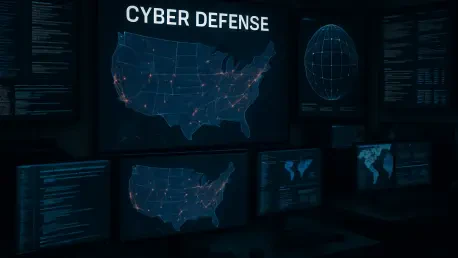Today, we’re thrilled to sit down with Rupert Marais, our in-house security specialist with deep expertise in endpoint and device security, cybersecurity strategies, and network management. With the recent US federal government shutdown raising critical concerns about national cybersecurity, Rupert offers a unique perspective on how such disruptions impact threat intelligence sharing, agency operations, and the broader security landscape. In this conversation, we’ll explore the immediate risks of the shutdown, the significance of key legislation, the effects of workforce reductions at critical agencies, and emerging threats like phishing scams targeting vulnerable employees.
How does the recent US federal government shutdown impact the nation’s ability to defend against cyber threats?
The shutdown creates a significant strain on our national cybersecurity posture. When federal funding lapses, many agencies responsible for monitoring and responding to cyber threats face operational challenges. Resources are stretched thin, and critical functions like real-time threat detection and response can slow down. This isn’t just a bureaucratic hiccup—it’s a window of opportunity for adversaries, whether they’re state-sponsored actors or criminal groups, to exploit vulnerabilities in government systems or target private sector partners who rely on federal support.
Why is the Cybersecurity Information Sharing Act of 2015 so vital to national security?
The Cybersecurity Information Sharing Act of 2015, or CISA 2015, is a cornerstone for collaboration between the government and private sector. It created a framework for companies to share threat data—like malware signatures or attack patterns—with federal, state, and local entities without fear of legal repercussions. This kind of voluntary exchange is crucial because cyber threats move fast, and siloed information can’t keep up. Without this law, we lose the momentum of collective defense that has been built over nearly a decade.
What are the consequences if legal protections for sharing cyber threat data lapse during the shutdown?
If those legal protections disappear, even temporarily, many companies will hesitate to share critical threat intelligence. Legal departments often advise caution in the absence of liability shields, which means slower, more limited exchanges of information. This creates a ripple effect—less data sharing leads to weaker situational awareness, delayed detection of attacks, and ultimately a diminished ability to stop adversarial campaigns before they escalate. It’s a step backward at a time when threats are only getting more sophisticated.
How do furloughs at the Cybersecurity and Infrastructure Security Agency affect its mission during a shutdown?
Furloughs at CISA are a major blow to its ability to execute core functions like threat analysis, incident response, and support for private sector partners. With a significant portion of staff sidelined—potentially over 60% based on recent guidance—proactive efforts like threat hunting take a backseat. This isn’t just about delayed reports; it’s about reduced capacity to coordinate with industries that depend on CISA’s guidance, leaving both public and private systems more exposed to risks.
What risks arise from having fewer personnel monitoring cyber threats at federal agencies?
Fewer eyes on the threat landscape is a dangerous scenario. Adversaries are always probing for weaknesses, and a reduced workforce means slower detection and response times. This can create openings for attackers to exploit vulnerabilities in US systems, potentially embedding themselves in networks before anyone notices. It also hampers coordination between government and private organizations, breaking down the collaborative defense mechanisms that are so critical in today’s threat environment.
How significant is the impact of contractors being sent home during the shutdown on federal cybersecurity?
Contractors play a huge role in maintaining federal cybersecurity, often handling tasks like vulnerability patching and incident response. When they’re sent home, agencies lose essential expertise at a time when threats don’t pause. This can leave federal systems vulnerable to exploits, especially when new vulnerabilities are announced and patches need to be applied quickly. Without that immediate support, agencies risk compromises that could expose confidential communications or disrupt operations.
What can we expect in terms of phishing and social engineering scams tied to the shutdown?
Unfortunately, shutdowns often lead to a spike in phishing and social engineering scams, especially targeting furloughed workers who may be anxious about payroll or benefits. We’re likely to see emails with subject lines like “Urgent payroll update” or “Furlough benefits action required,” designed to steal credentials or bypass multifactor authentication. Threat actors might even pair these with phone calls to seem more legitimate. It’s a predatory tactic that exploits uncertainty, and both individuals and agencies need to be on high alert.
What is your forecast for the future of cybersecurity collaboration if shutdowns and funding lapses continue to disrupt critical agencies and legislation?
If shutdowns and funding lapses become a recurring issue, I foresee a troubling erosion of trust and efficiency in cybersecurity collaboration. Companies may grow wary of sharing data without consistent legal protections, and agencies like CISA could struggle to maintain their role as a central hub for threat intelligence. Over time, this could fragment our national defense efforts, leaving us more vulnerable to sophisticated attacks. We need stable funding and policy continuity to rebuild momentum and keep pace with adversaries who don’t face these same constraints.









